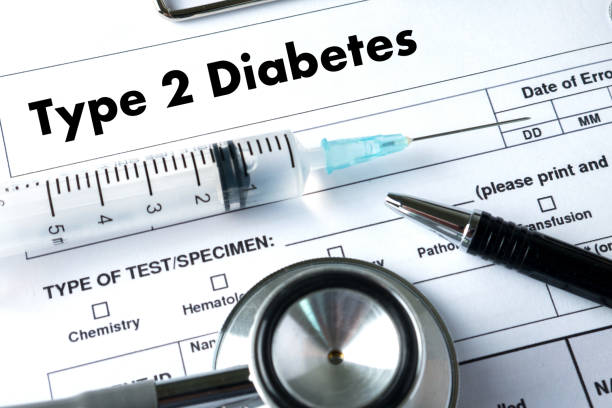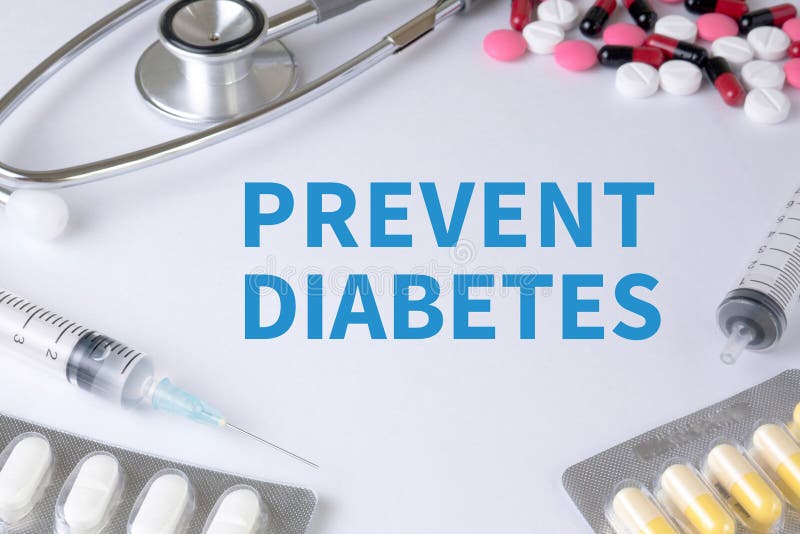The Role of Diet in Managing Type 2 Diabetes Mellitus
 |
| Type 2 Diabetes Mellitus // iStock |
Foods to Avoid and Include in a Type 2 Diabetes Diet Plan
I R E A D : The Nutrient-Dense Superfood for Improved Health and Wellness
what is type 2 diabetes mellitus
Type 2 diabetes mellitus is a chronic metabolic disorder that affects the body's ability to metabolize sugar (glucose). It is the most common form of diabetes, accounting for about 90% of all cases.
In type 2 diabetes, the body either does not produce enough insulin or does not use it properly. Insulin is a hormone that regulates the amount of glucose in the blood and helps the body use glucose for energy. When insulin resistance occurs, glucose builds up in the blood, leading to hyperglycemia (high blood sugar).
Risk factors for type 2 diabetes include obesity, physical inactivity, family history of diabetes, age, and certain ethnicities. Symptoms of type 2 diabetes may include increased thirst, frequent urination, fatigue, blurred vision, and slow healing of wounds.
Treatment for type 2 diabetes may include lifestyle changes such as healthy eating, regular exercise, and weight loss, as well as medication to control blood sugar levels. Long-term management of type 2 diabetes is important to prevent complications such as heart disease, kidney disease, nerve damage, and blindness.
* examples of type 2 diabetes mellitus research results?
There have been many research studies on type 2 diabetes mellitus, and here are some examples of their findings:
Lifestyle interventions, such as diet and exercise, can effectively prevent or delay the onset of type 2 diabetes in high-risk individuals.
Medications such as metformin and sulfonylureas can effectively lower blood sugar levels in people with type 2 diabetes.
Bariatric surgery, which involves the surgical reduction of the stomach size, can lead to significant weight loss and improvement in blood sugar control in obese individuals with type 2 diabetes.
Continuous glucose monitoring (CGM) devices can provide real-time information about blood sugar levels and help individuals with type 2 diabetes better manage their condition.
Recent research has shown that certain medications, such as SGLT2 inhibitors and GLP-1 receptor agonists, can help reduce the risk of cardiovascular disease and kidney disease in people with type 2 diabetes.
Genetic studies have identified several genes associated with an increased risk of developing type 2 diabetes, which could lead to the development of personalized treatments for the condition.
Overall, research on type 2 diabetes has provided important insights into the mechanisms of the disease and how it can be effectively managed, which can improve the health outcomes of millions of people around the world who are affected by this condition.
I R E A D : 10 Warning Signs of Stage 4 Lung Cancer to Look Out For
* How many people with diabetes mellitus type 2 in the world
According to the International Diabetes Federation (IDF), in 2021, there were approximately 537 million adults (aged 20-79 years) living with diabetes worldwide, of which approximately 90% had type 2 diabetes. This represents approximately 8.5% of the world's adult population. The number of people with diabetes is expected to rise to 643 million by 2045, with type 2 diabetes accounting for the majority of cases. Diabetes is a major global public health issue that can lead to serious complications such as heart disease, stroke, kidney disease, and blindness, and it is important to improve awareness, prevention, and management of this condition.
* Treatment of type 2 diabetes mellitus
The treatment of type 2 diabetes mellitus involves a multi-disciplinary approach that aims to control blood sugar levels and prevent complications. Treatment options may include:
 |
| Treatment of type 2 diabetes mellitus // Dreamstimes |
- Lifestyle modifications: This includes a healthy diet, regular exercise, and weight management. These measures can help improve insulin sensitivity, lower blood sugar levels, and prevent complications.
- Medications: Oral medications such as metformin, sulfonylureas, and DPP-4 inhibitors are commonly used to lower blood sugar levels in people with type 2 diabetes. Other medications, such as GLP-1 receptor agonists and SGLT2 inhibitors, may also be used to improve blood sugar control and reduce the risk of cardiovascular disease and kidney disease.
- Insulin therapy: Some people with type 2 diabetes may require insulin therapy, either alone or in combination with oral medications, to manage their blood sugar levels.
- Continuous glucose monitoring (CGM): This is a device that can provide real-time information about blood sugar levels, which can help individuals with type 2 diabetes better manage their condition.
- Bariatric surgery: For individuals with obesity and type 2 diabetes, bariatric surgery may be recommended to induce weight loss and improve blood sugar control.
In addition to these treatments, it is important for individuals with type 2 diabetes to undergo regular medical check-ups, such as eye exams, foot exams, and blood pressure monitoring, to detect and manage complications early. They should also have regular A1C tests to monitor their blood sugar control over time.
I R E A D :
- Dietary Changes for Lower Blood Pressure: 10 Best Habits Recommended by Dietitians
- Eating Habits to Avoid: Top Culprits of High Cholesterol
- Maximizing the Benefits of Omega-3: A Comprehensive Guide to Their Importance in Your Diet
- The Healing Brew A Comprehensive Guide to the Health Benefits of Tea
The treatment of type 2 diabetes requires a comprehensive approach that involves a combination of lifestyle modifications, medications, and regular monitoring to achieve optimal blood sugar control and prevent complications.
* foods should be avoided related to type 2 diabetes mellitus
For individuals with type 2 diabetes, it is important to manage their diet to help control blood sugar levels. Here are some foods that should be avoided or limited:
- Foods high in sugar: This includes sugary drinks, desserts, candies, and sweetened cereals. These foods can cause a rapid rise in blood sugar levels, which can be particularly problematic for people with diabetes.
- Processed and refined carbohydrates: This includes white bread, pasta, and rice, as well as many processed foods such as crackers, chips, and snack bars. These foods can also cause a rapid rise in blood sugar levels and are low in nutrients.
- Trans and saturated fats: Foods high in these types of fats, such as fried foods, fatty meats, and full-fat dairy products, can increase the risk of heart disease, which is already elevated in people with type 2 diabetes.
- High-sodium foods: Foods high in sodium, such as processed meats, canned foods, and fast food, can increase blood pressure, which can be particularly problematic for people with diabetes who are already at increased risk of heart disease.
Instead, individuals with type 2 diabetes should focus on consuming a balanced diet that includes plenty of:
- Whole grains: Whole grains are a good source of fiber and nutrients and can help regulate blood sugar levels.
- Fruits and vegetables: These are low in calories, high in fiber and nutrients, and can help regulate blood sugar levels.
- Lean protein: Lean protein sources, such as skinless chicken, fish, and legumes, can help regulate blood sugar levels and promote satiety.
- Healthy fats: Foods high in healthy fats, such as avocados, nuts, and seeds, can help regulate blood sugar levels and reduce the risk of heart disease.
A balanced diet that emphasizes whole, nutrient-dense foods and limits processed and high-sugar foods can help individuals with type 2 diabetes better manage their condition and improve their overall health.
Type 2 diabetes mellitus is a chronic condition characterized by high blood sugar levels caused by insulin resistance or a decreased ability of the body to produce insulin. It is a growing health problem worldwide and is often associated with other conditions such as obesity, hypertension, and dyslipidemia. The primary goal of treatment for type 2 diabetes is to manage blood sugar levels and prevent complications, which can include heart disease, stroke, kidney disease, and nerve damage. Treatment options include lifestyle modifications, medications, insulin therapy, continuous glucose monitoring, and bariatric surgery. A healthy diet that emphasizes whole, nutrient-dense foods and limits processed and high-sugar foods is also important for managing type 2 diabetes. Regular medical check-ups and monitoring are also essential to detect and manage complications early. By following a comprehensive approach to treatment, individuals with type 2 diabetes can achieve optimal blood sugar control and reduce their risk of complications.
I R E A D : Understanding Angelman Syndrome: Causes, Symptoms, and Available Treatments

No comments:
Post a Comment